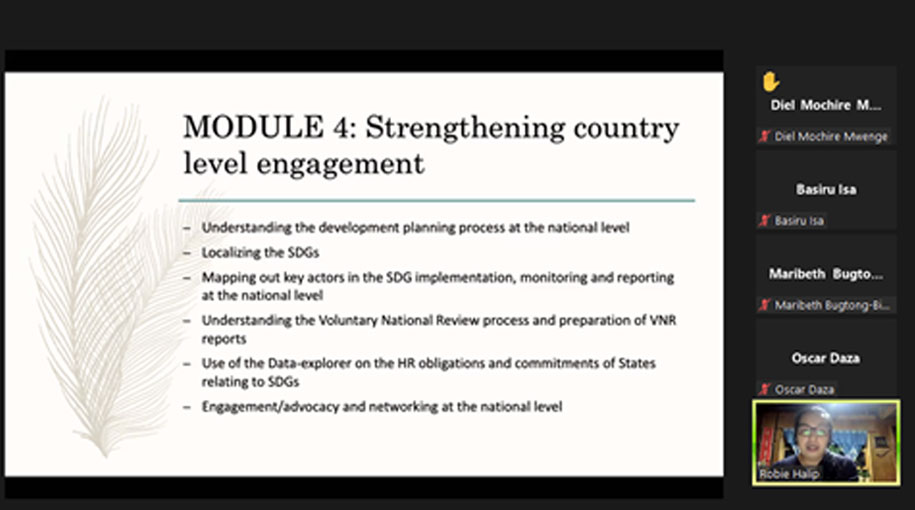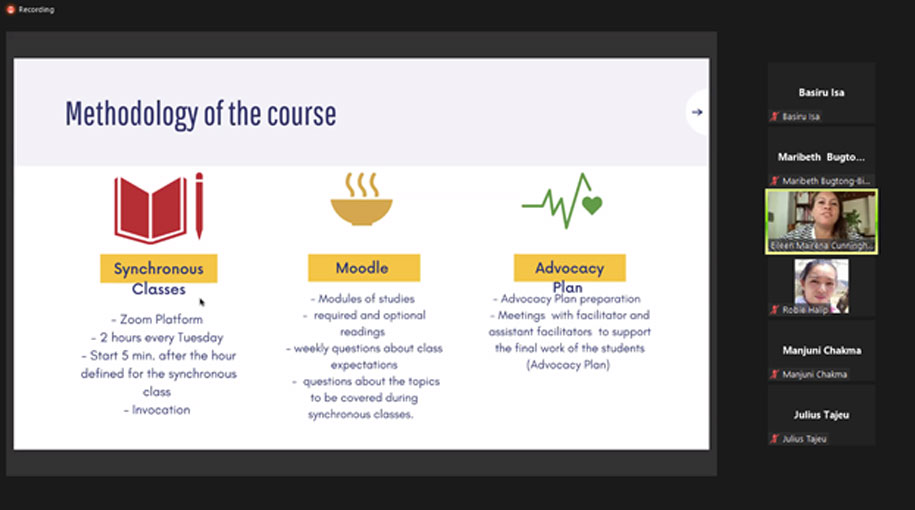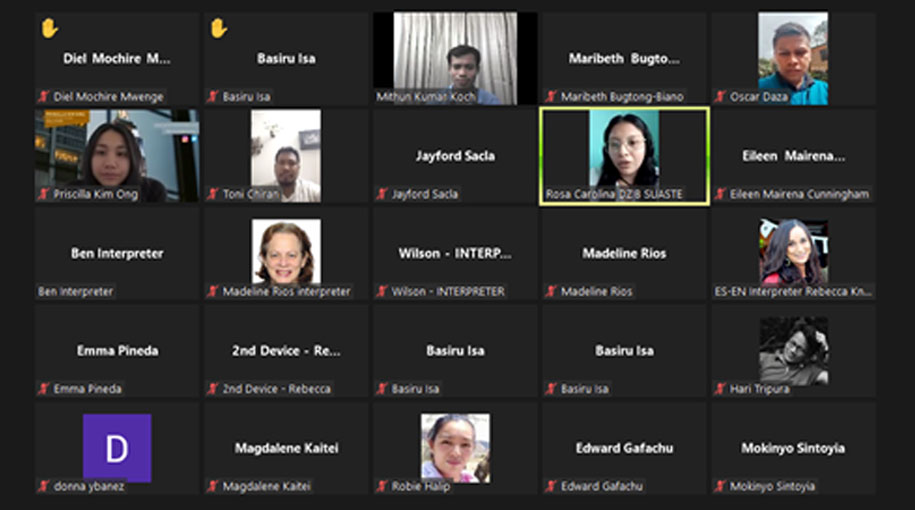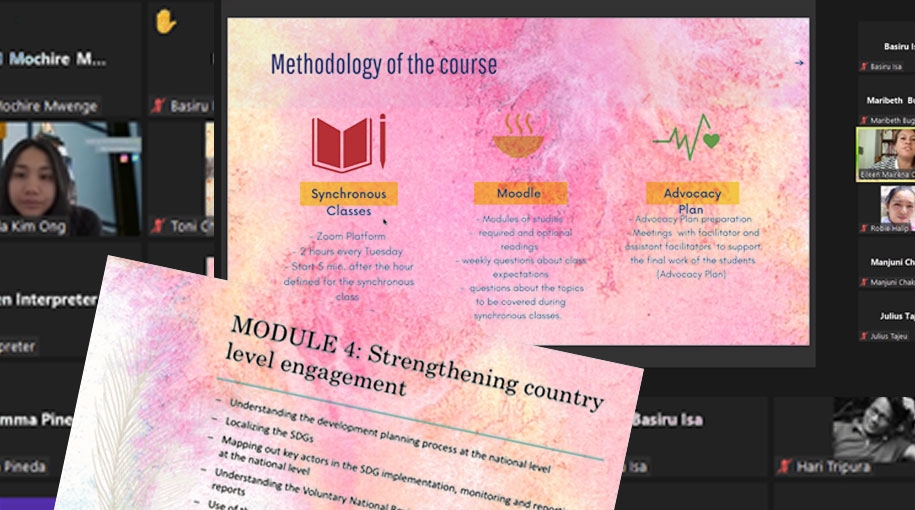“The struggle is not about to end. These struggles are intergenerational.”
Stanley Kimaren ole Riamit, Executive Director of Indigenous Livelihoods Enhancement Partners (ILEPA) in Narok, Kenya, elaborated on the significance of the training of second-generation indigenous leaders during the recent opening session of the third segment of the virtual training on policy advocacy on 31 August 2021.
Endorsed by the different partners and members of Elatia, Nia Tero and the Indigenous Peoples Major Group for Sustainable Development (IPMG-SDG), about 40 young indigenous leaders are participating in the virtual training on policy advocacy that focuses on the Sustainable Development Goals (SDGs). The training particularly aims to provide basic information about the 2030 Agenda for Sustainable Development, its background, and its links to indigenous peoples’ rights and aspirations, as well as the opportunities and challenges it provides.

The training also hopes to offer practical guidance on how indigenous peoples can engage in sustainable development processes in order to assert their right to self-determined development and contribute to the achievement of sustainable development for all. In addition, the training will provide participants with an overview of the Indigenous Navigator (IN) as a monitoring tool for the implementation of the indigenous peoples’ rights in the SDGs. The participants will also be taught necessary skills in policy advocacy work on the SDGs.

The initiative’s pool of trainers includes indigenous leaders and experts who are actively engaging in various processes on the SDGS with the IPMG-SDG, namely Joan Carling, Eileen Mairena Cunningham, Robie Halip and some guest trainers.
Culminating three months after, on November, the training is jointly implemented by the ILEPA and the Elatia Indigenous Peoples Training Institute with support from Tebtebba, Nia Tero, and Bread for the World.



